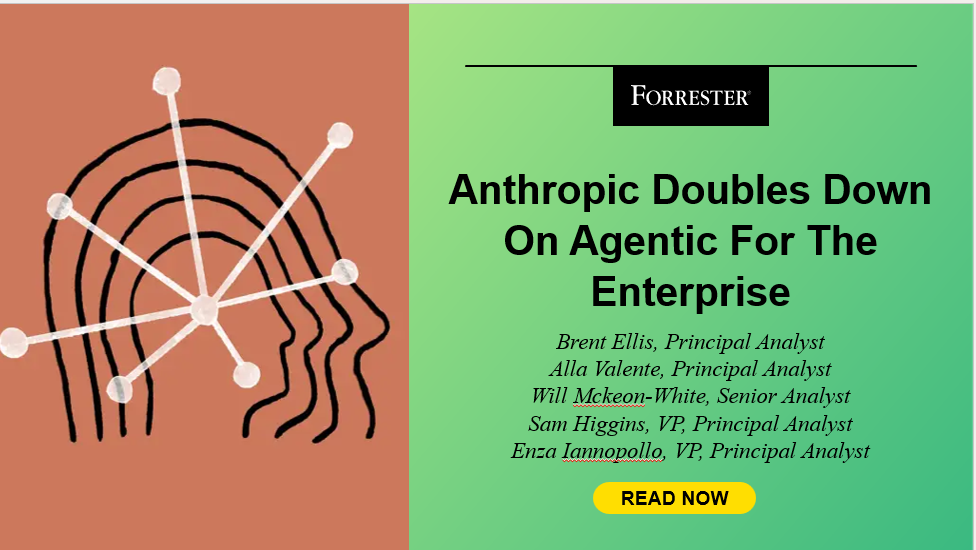Say the IRS agrees that you are entitled to a sizeable tax deduction. But on audit, the IRS determines that you reported the tax deduction using the wrong form. The form used does not change the amount of the tax deduction or the taxpayer that would ultimately pay the tax. From the IRS’s perspective, the form is of no consequence. Should the taxpayer be denied their tax deduction?
This scenario highlights one of the most frustrating aspects of working with the IRS and courts on tax matters. Procedural technicalities override substantive entitlement to legitimate deductions. Even when the IRS acknowledges that a taxpayer deserves a deduction, courts sometimes apply rigid formalistic rules that prevent recovery based on form-selection errors.
The court in Shleifer v. United States, 2025 WL [citation needed], S.D. Fla. June 9, 2025, addressed this exact situation. The case involved a depreciation deduction on a private jet purchased through a separate LLC. The court applied the variance doctrine to deny the taxpayer’s tax deduction.
Facts & Procedural History
This tax dispute involves a $1.9 million tax refund claim. The husband worked as a partner at an investment firm requiring extensive travel. The taxpayer chose to fly private through his wholly-owned LLC rather than accept his firm’s commercial airfare reimbursements.
The LLC purchased a 37.5% interest in a private jet for $19.7 million in 2014. The LLC wasn’t structured to collect management or rental fees. The court noted that the LLC was not operated for profit. During 2014, the taxpayer logged 54.1 flight hours with 31.1 hours attributable to business travel.
The taxpayers initially filed their 2014 joint tax return claiming $2.6 million in travel expense deductions as unreimbursed partnership expenses on Schedule E. They paid the required taxes on time. In October 2018, they filed an Amended Tax Returns seeking a $1.9 million refund based on a $5.9 million depreciation deduction for the private jet that they had inadvertently omitted from their original return.
The amended return reported this depreciation deduction on Schedule C as a business loss. This left the LLC with zero gross income but substantial depreciation expenses. The large refund claim triggered Tax Audits.
The IRS questioned whether the LLC operated as a legitimate business entitled to Schedule C treatment. The examining agent ultimately determined that the depreciation could not be claimed as a business expense because the LLC lacked the profit motive required for trade or business status. However, the IRS agent acknowledged that the depreciation deduction “might have been valid if it had been claimed on a Schedule E” as an unreimbursed partnership expense. The agent noted in his examination record that the depreciation was “an investment expense that can be deducted against Flow-thru income on Sch. E.” Rather than allow the taxpayer to correct this form-selection error, the agent chose to deny the claim entirely despite knowing the taxpayer was substantively entitled to the deduction.
The IRS issued a claim disallowance letter which led to Tax Litigation in federal district court. Both parties filed cross-motions for summary judgment.
About Depreciation Deductions
Depreciation deductions under Section 167 represent a method of recovering the cost of business assets over their useful lives. The rules in Section 167(a)(1) allow depreciation for “the reasonable allowance for the exhaustion, wear and tear (including a reasonable allowance for obsolescence)” of property used in a trade or business or held for the production of income.
When a taxpayer purchases business or investment property, they get a tax deduction. The tax deduction is intended to be allowable over time to match the expected income that will be received from the asset. There are nuances in timing, but this is the general idea.
For business assets, Section 167 is subject to the rules in Section 162. Section 162 is the general rule that applies to business assets. Section 162 imposes additional requirements for business deductions.
There are several nuanced rules that try to expand and limit depreciation deductions to reward taxpayers for certain expenses and deny the deduction for others. These rules also allow faster recovery for some expenses but not for others. When a taxpayer places qualifying property in service during the tax year, they may claim both regular depreciation under Section 168 and bonus depreciation under Section 168(k) for qualifying assets. The parties in this case agreed that the depreciation calculation itself was correct regardless of which schedule should have been used.
Business Deductions Under Section 162
The tax code allows taxpayers to deduct ordinary and necessary expenses incurred in carrying on a trade or business. This can be found in Section 162. Section 162 provides the foundation for most business expense deductions.
Section 162(a) allows a deduction for “all the ordinary and necessary expenses paid or incurred during the taxable year in carrying on any trade or business.” This broad language encompasses various business costs. The requirement that expenses be incurred in “carrying on” a trade or business creates an important threshold test.
Businesses that meet this test can file a separate tax return depending on the type of legal entity and structure. They might file a Form 1120, 1120S, 1065, or other business return. If they are wholly owned LLCs as in this case, they can report the tax deductions on a Schedule C on the taxpayer’s own Form 1040 individual tax return. If the business is not a trade or business, it can still report the same items. It usually has to do so on a Schedule E on the taxpayer’s own Form 1040 individual tax return.
To qualify for Schedule C treatment, an activity must constitute a trade or business with the primary purpose of generating income or profit. The taxpayer must demonstrate a genuine profit motive, regular and continuous activity, and substantial business operations. Courts examine factors such as the manner of conducting the activity, the expertise of the taxpayer, the time and effort expended, and the expectation of profit.
What Qualifies as a Trade or Business?
The determination of whether an activity constitutes a trade or business requires examining the taxpayer’s primary purpose and operational characteristics. The courts have noted that the phrase “trade or business” is not defined in the tax code. This has left courts to develop the definition through case law.
Courts have said that sporadic or passive activities generally do not qualify for trade or business status. This is true even when they involve substantial assets. Courts have said that the activity must be regular and continuous. It must be conducted with a genuine profit motive. It must involve more than mere investment activities.
In this case, the court concluded that the LLC was not a trade or business. This was based on several factors. The entity did not generate revenue. It did not employ workers. It did not provide services to third parties. Its sole function was facilitating the taxpayer’s own business travel. The taxpayers conceded that the LLC was not operated to generate profit.
These facts distinguish this LLC from legitimate aircraft leasing or charter businesses. Those businesses actively market services to customers and maintain profit-driven operations. The absence of commercial activity or profit motive made Schedule C treatment inappropriate for the depreciation deduction.
Understanding Unreimbursed Partnership Expenses
A partnership files its own income tax return. The return generally does not compute tax. It aggregates items of income and expense and then allocates those to the individual partners. The partnership’s return does not function as a report to show the calculation of tax. It shows the net profit and loss to the IRS. The individual income tax returns receive these flow-through items and show the calculation of tax.
This brings us back to the Section 162 expenses here. The partnership tax return can report tax deductions under Section 162. When a partner incurs expenses on behalf of the partnership, they may deduct them as unreimbursed partnership expenses. There are a few other requirements for this treatment. The partnership agreement must require the partner to pay certain expenses from personal funds. The expenses must be ordinary and necessary for the partnership’s business activities. Travel expenses often qualify when partners are required to pay their own transportation costs for partnership business.
The IRS agent in this case did not dispute that these expenses were likely unreimbursed partnership expenses. The agent agreed they were deductible. The taxpayer’s investment firm required extensive travel. He chose to pay private aviation costs rather than accept commercial airfare reimbursements. The partnership agreement required partners to bear their own travel expenses. The depreciation related to business travel could qualify as an unreimbursed partnership expense. The taxpayer had claimed similar deductions in subsequent tax years as unreimbursed partnership expenses.
The Refund Claim & Variance Doctrine
The IRS agent and the taxpayer both were in agreement. The tax deduction would be the same regardless of whether reported on Schedule C or as a flow-through item for an unreimbursed partnership expense. Why did the taxpayer lose its tax deduction here?
The IRS argued that the variance doctrine applied. The court agreed. The variance doctrine comes up in federal tax refund litigation. It prevents taxpayers from filing a refund claim reporting one thing and then taking a different position with the IRS during the litigation for the refund.
This rule is set out in Treasury Regulation 301.6402-2(b)(1). The regulation explains that taxpayers are to “set forth in detail each ground upon which a credit or refund is claimed and facts sufficient to apprise the Commissioner of the exact basis thereof.” The regulation warns that claims failing to meet this standard “will not be considered for any purpose as a claim for refund or credit.” This procedural rule prevents taxpayers from asserting grounds for refund in court that were not properly presented to the IRS during the administrative process.
The doctrine serves administrative purposes. It allows the IRS to evaluate claims intelligently before litigation. It avoids the costs of defending against theories that were never properly presented. The doctrine’s rigid application can produce results that seem to elevate form over substance. This may exceed the regulation’s intended scope.
How This Court Misapplied the Variance Doctrine
The court’s application of the variance doctrine makes little sense given the facts. The doctrine requires that taxpayers provide the IRS with sufficient information to evaluate their claims during the administrative process. Here, the IRS agent explicitly acknowledged that the depreciation deduction was valid under Schedule E. The agent documented this acknowledgment in his examination records. The IRS possessed all the information needed to evaluate the claim.
The court focused on the taxpayer’s original Form 1040X, which simply stated they “inadvertently neglected to claim a depreciation deduction for a business asset purchased and placed in service in 2014.” The court treated this as limiting the taxpayer to only the Schedule C theory. This ignores that the IRS agent understood exactly what was being claimed and acknowledged its validity under a different legal theory.
The court’s reasoning that Schedule E would require examining “different facts” is questionable. The partnership agreement and reimbursement policies were already relevant to the taxpayer’s business travel. The IRS knew about the taxpayer’s consistent treatment of similar expenses in subsequent years. These weren’t new facts that would surprise the IRS.
The variance doctrine prevents unfair surprise and ensures intelligent administrative review. Both purposes were satisfied here. The IRS agent knew the alternative legal theory was correct. The agency possessed all relevant facts. Yet the court still applied the doctrine to bar consideration of the claim.
This approach allows the IRS to have it both ways. The agency can acknowledge during an audit that a taxpayer’s position is correct. It can document that acknowledgment. Then it can argue in court that the variance doctrine prevents consideration of that same position. This contradicts established precedent that the IRS cannot feign ignorance of information it actually possesses.
The court created a troubling precedent where form selection errors can defeat otherwise valid claims. The complexity of the tax system creates these situations. Taxpayers shouldn’t lose legitimate deductions when the IRS fully understands their claims and acknowledges their validity.
The Takeaway
This decision demonstrates how rigid application of procedural rules can prevent taxpayers from recovering refunds they may legitimately deserve. This decision elevates formalistic compliance over substantive fairness and, if the taxpayer were to appeal, it may not survive appellate review. The case does show how taxpayers often have to press the government to reach the right result. The government had many opportunities to do so here. More troubling is the IRS agent’s conduct in this case. The agent knew the taxpayer was substantively entitled to the deduction but chose to deny it based on a form-selection error rather than exercise reasonable discretion. The court did the same–leaving it to the taxpayer to appeal the decision to try to get to the right result.
Watch Our Free On-Demand Webinar
In 40 minutes, we’ll teach you how to survive an IRS audit.
We’ll explain how the IRS conducts audits and how to manage and close the audit.



























